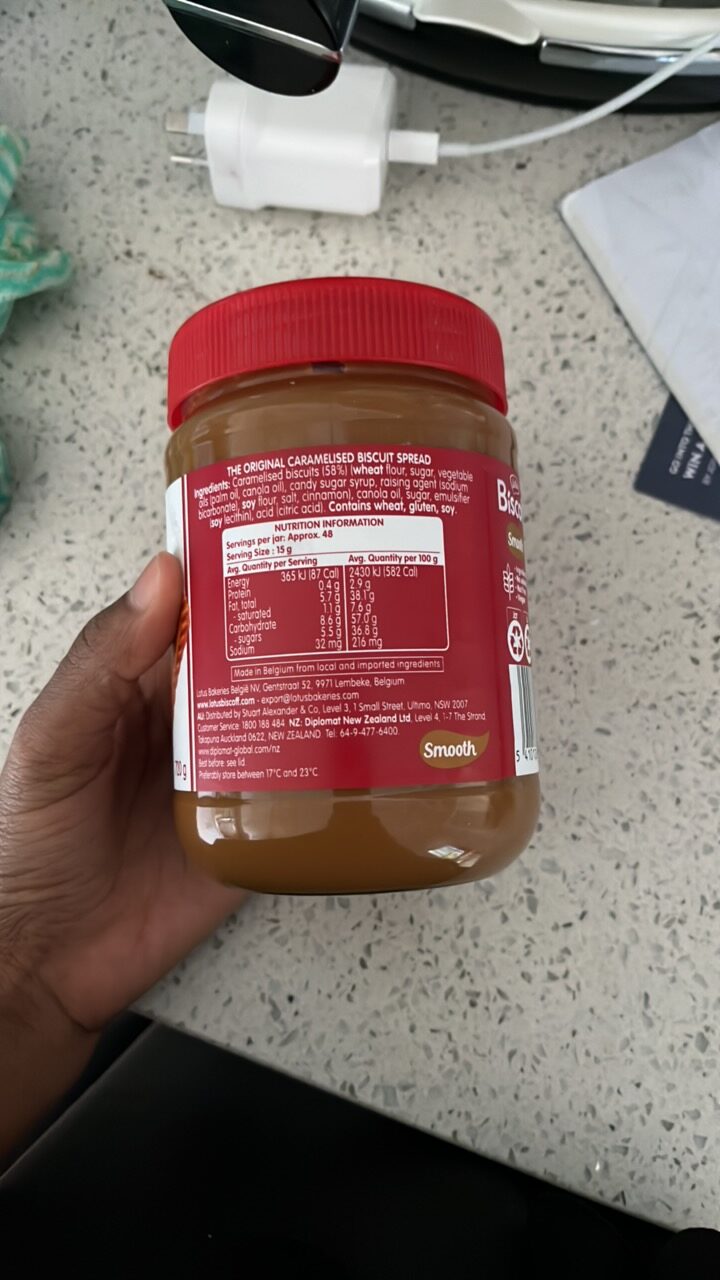
Barcode: 5410126296938
Caramelised Biscuit Spread
DOUBTFUL
📝 Reason: Check for Halal Logo
📄 Certificates: None
Ingredients:
Details
Is Caramelised Biscuit Spread Halal?
The question of whether Caramelised Biscuit Spread is Halal is one that many consumers are asking. This popular treat, known for its sweet and caramelized flavor, has ingredients that warrant a closer look. While some components are naturally Halal, the presence of potentially ambiguous ingredients raises questions regarding its overall Halal certification.
Understanding the Ingredients
Let’s break down the ingredient list of Caramelised Biscuit Spread:
- Wheat flour: This ingredient is naturally Halal as it comes from grain-based sources. Source.
- Sugar: Being plant-based, sugar is also naturally Halal. Source.
- Vegetable oil: Derived from various plants, vegetable oil is considered Halal. Source.
- Candy sugar syrup: This ingredient is also plant-based and therefore Halal. Source.
- Potassium Carbonate / Potassium Bicarbonate (E501): These substances are salts and normally regarded as Halal. Source.
- Cinnamon: As a spice, cinnamon is naturally Halal. Source.
- Canola oil: Another vegetable-based oil, also Halal. Source.
- Lecithin: This is where it gets tricky; lecithin’s source is often unclear and may potentially be animal-derived, marking a red flag for Halal certification. Source.
- Citric acid: Typically fermented, citric acid is generally seen as Halal. Source.
Halal Status Overview
So, when we evaluate the Halal status of Caramelised Biscuit Spread, we find that while most ingredients appear to be fine, the Lecithin’s ambiguous nature brings its overall Halal classification into doubt. The lack of a Halal certification further complicates matters.
Brand Context and Market Presence
Caramelised Biscuit Spread is a popular item in various markets, often classified under sweet spreads. Brands offering this product can often be seen in supermarkets, but consumers should be vigilant. If the product is missing a Halal logo, it’s prudent to check with the manufacturer directly or look for alternative brands that do carry Halal certifications.
How to Verify Halal Status?
If you’re unsure about the Halal status of Caramelised Biscuit Spread, it’s essential to verify before consumption. Checking for a Halal certification on the label is the first step. In the absence of a logo or official certification, contacting the company through their customer service or website for clarification on the ingredient sources can provide peace of mind.
Conclusion
In conclusion, Caramelised Biscuit Spread’s Halal status is currently labeled as doubtful primarily due to the uncertain origin of Lecithin. While other ingredients are generally considered Halal, the absence of a certification necessitates caution. As always, informed choices lead to better consumption practices. Always keep an eye out for that Halal certification!

